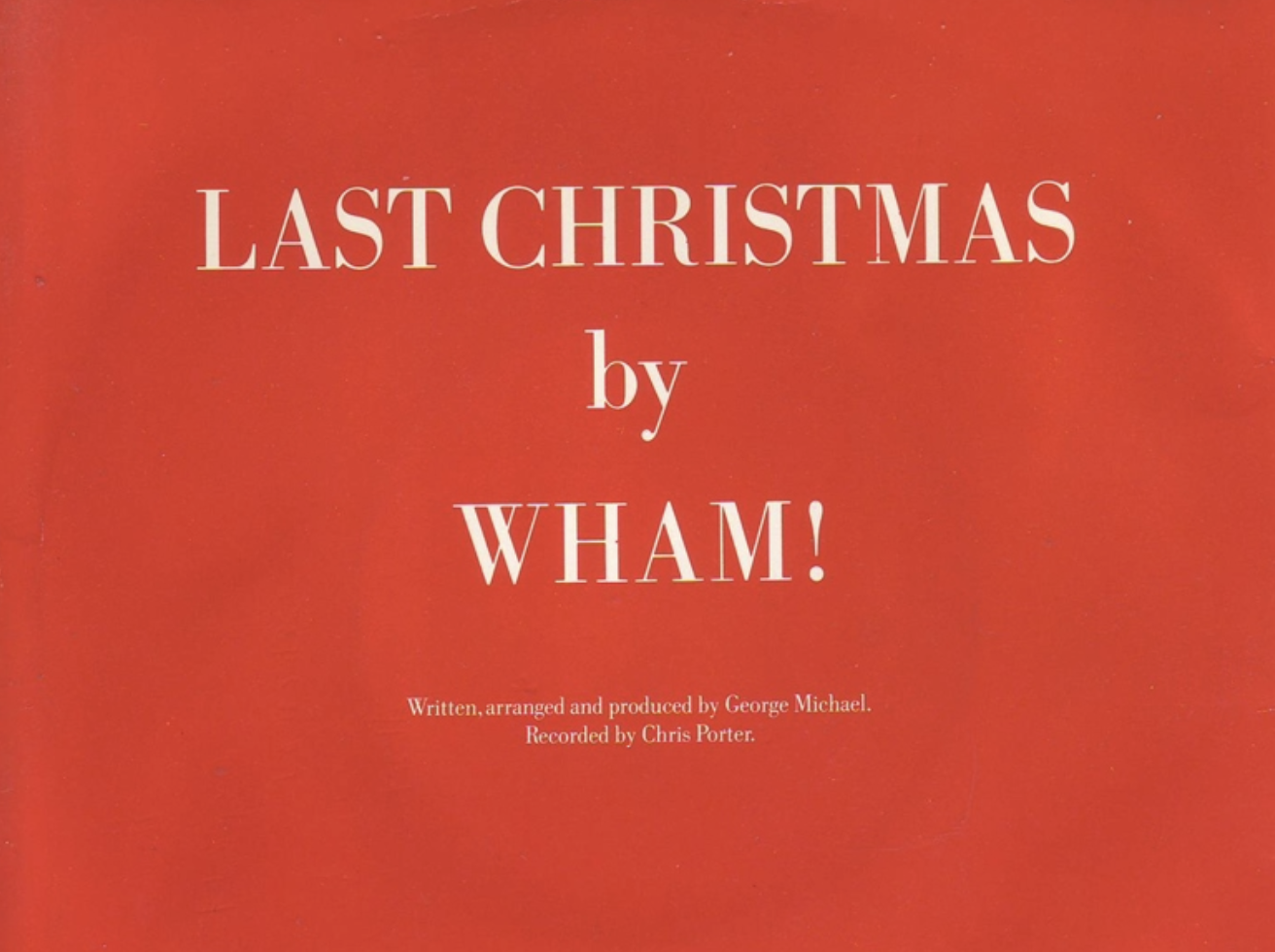In what might be deemed a cruel irony, George Michael died on Christmas Day of something that prompted the Grinch himself to live a much fuller life: an enlarged heart. The medical term for which is called: dilated cardiomyopathy. Michael a.k.a. “Yog” was just fifty-three when he passed away on Christmas of 2016 (the year that notoriously snatched up so many icons from this realm). A year that saw Clean Bandit’s “Rockabye” enter the UK charts as the Christmas number 1…though it wasn’t exactly the most festive song. Then again, many weren’t feeling especially festive in 2016, between the David Cameron-helmed referendum on whether or not the UK should leave the EU (better known as Brexit) and the takeover of the U.S. by Donald Trump. Ah yes, and, as mentioned, the death of so many luminaries in the music industry, including David Bowie, Prince and Leonard Cohen. George Michael simply “rounded out the list” with his end-of-year death. A year that, unfortunately, did not see “Last Christmas” even crack the top ten of the UK Christmas chart, though Michael would have lived to see it happen if the masses had been as up “Last Christmas”’ ass as it always is with Mariah Carey’s “All I Want For Christmas Is You.”
Alas, as the story usually goes, one is only appreciated in death in a way they weren’t in life. So it was that, the following year, “Last Christmas” shot to number three on the UK Christmas chart, surpassed by two Ed Sheeran songs (because 2017 was the Year of Ed Sheeran, #ShapeOfYou). 2018 seemed to signal that the UK had forgotten altogether about George Michael, er, Wham! deserving his Christmas number one by instead ceding it to the atrocious novelty song “We Built This City…On Sausage Rolls” by the equally as atrocious LadBaby. A YouTube “influencer” who would manage to take the top spots on the Christmas chart in 2019, 2020, 2021 and 2022. Oh, the horror. Even more of a horror, in fact, than if Blue had beaten out Billy Mack for the top spot on the Christmas chart in Love Actually (the only reason many Americans are even aware of what “a thing” the UK Christmas number one is).
But finally, in 2023, the UK came to its senses in at least one regard: crowning “Last Christmas” with the royal title of Christmas number one. It’s difficult to say what might have finally spurred listeners to give the single its due (originally written by Michael to become a Christmas number one in 1984…only to lose out to Band Aid’s condescending “Do They Know It’s Christmas?” [which, at the very least, Michael was also featured on as consolation for “Last Christmas”’ number two spot]). Is it the sudden memory of Michael’s death having occurred on Christmas Day? Being utterly fed up with Mariah’s now insufferable song? Remembering that “Last Christmas” features prominently in The Holiday? Who can say for sure. But maybe one thing that’s clear about this particular single at last getting its rightful status is that Britons (not to mention the world at large) are so obviously yearning for the simpler time that they think “Last Christmas” represents. Even if it came out during one of the most loathed political periods in Britain—when Thatcher was in control and AIDS was being totally ignored by the government. A time when a man like Michael had to stay in the closet in order to sidestep the rampant homophobia that the AIDS epidemic only fortified. Thus, the overtly coded language of “Last Christmas,” with Michael singing lyrics like, “A face of a lover with a fire in his heart/A man undercover, but you tore me apart.” That word “undercover” of course alluding to Michael’s own concealed sexuality.
Calling himself a “fool” for believing he could love someone so openly without fear of 1) heartbreak and 2) exposure, Michael vows never to make the same mistake again. But that doesn’t mean Christmas won’t continue to keep triggering him year after year as a result of his error in judgment. And, undoubtedly, he yearns to return to that day before the Christmas of the year in question that his heart was broken, when it seemed possible to still believe in the kind of love that can last forever (or at least more than a couple days). Ergo, why it’s so heartbreaking when he realizes that his love isn’t returned. Because if it were, the object of his affection wouldn’t so carelessly give his heart away…and give him away (“You gave me away”). That expression inferring that a secret was given away, like say, his sexuality.
So maybe, at the core of it all, the real reason “Last Christmas” secured the top spot as Christmas number one this year has more to do with a return to the repression of homosexuality. This being a response to the undeniable return of conservatism throughout the world, and puritanical views that would make many a gay person fear being open about their love. Especially if they’re going home to a boomer-dominated household.





















[…] However, upon closer study, it feels obvious that the iconic Christmas single (which, at long last, secured its rightful place as the UK’s Christmas number one on the charts) is all about George Michael’s repressed sexuality. And the corresponding fear of being […]